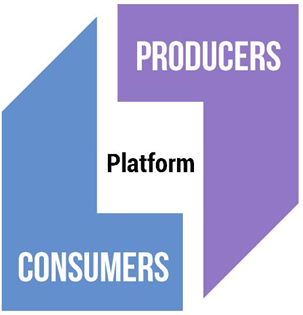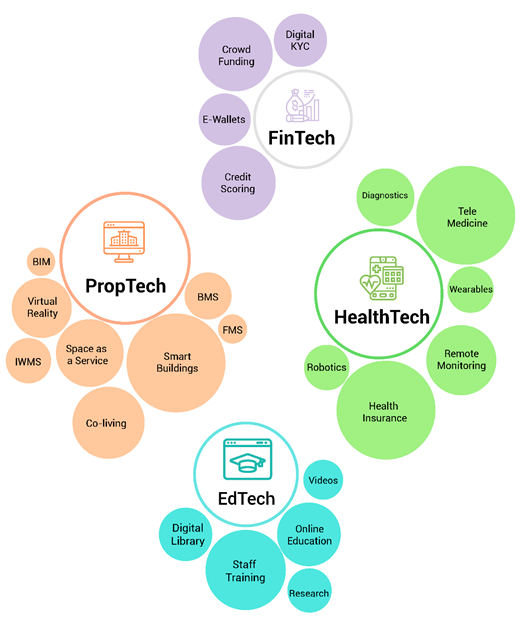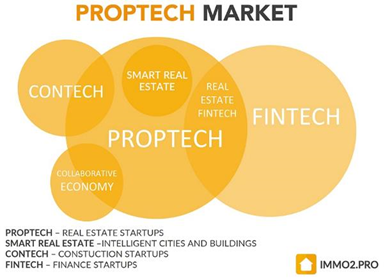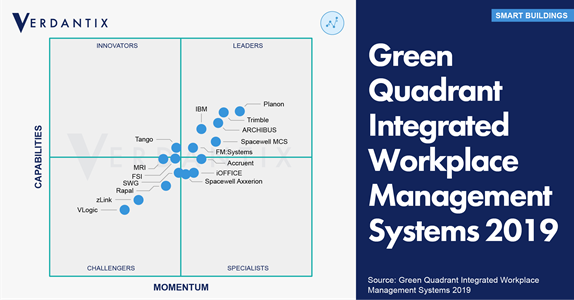One’s tertiary is some one’s primary. Otherwise why this less talked about property management is targeted for technology disruption?
It is interesting to see how the power of platforms will also start to influence the way PropTech is undergoing disruption.
What’s the next wave has to bring in?
Uber – Smartphone based car service, 5 years after the launch date, valued by investors at over 50 billion USD, and is poised to challenge the conventional taxi business. Expanded its footprint more than 200 global cities it operates in—all without owning a single car.
Retailing giant Alibaba’s unit Taobao features nearly a billion different products known as “the world’s biggest bazaar”—all without owning a single item of inventory.
With over 2 billion subscribers visiting regularly for the news, photos, music, and watch videos is undoubtedly the world’s biggest media company—all without producing a single piece of authentic content.
Uber, Alibaba, Facebook and Airbnb are just four examples from a list of disruptive platforms that includes Amazon, Wikipedia, eBay, Apple, Upwork, Instagram ,Twitter, Pinterest, and dozens more. Each is unique and focused on a niche and market but how did they transform a swath of the global economy. That’s the power of the platform!!
The “platform” is a simple-sounding yet a transformative concept, which is radically changing business, the economy, and society at large.
The disruptive power of platforms is also transforming the lives of individuals in ways that would have been impossible before. James Erwin who is a software manual writer, typed response for a question in Reddit made him a full time movie writer. There were lots of stories like this. Platforms derive much of their value from the communities they serve.
The platform revolution is here, and the world it is ushering in is here to stay. But what exactly is a platform and its remarkable transformative power?

Platform is often mistaken with a mobile app, product or a website, but a platform isn’t just a piece of software. It is a holistic business model that creates value by bringing together consumers and producers.
Very common misuse of the term “platform” is when it is used to describe an integrated suite of software products. SaaS companies love to claim they have a complete “platform” for X. In such cases, the word “platform” really is just being used as a marketing term, these SaaS companies are still linear businesses if the core functions described below are missing:
- Audience building
- Matchmaking
- Providing core tools and services
- Setting rules and standards

Let’s now see what PropTech is and recent trends and advancements.
Property + Technology = PropTech, is that all?
In general, proptech is technology for real estate. It’s becoming another buzz term in tech, along with its tech cousins: EdTech, FinTech etc.
In real life terms, it’s a category of companies and tech startups that create solutions to make planning, managing, trading, and using real estate more efficient and easier at every stage of a building’s lifecycle.
PropTech doesn’t just introduce technology into the real estate industry. It also changes the traditional business models to the ones that are more efficient, cost-effective, and customer-friendly. With the latest tools and technologies, proptech offers services and platforms for property owners, investors, and real estate professionals. It also focuses on catering to the other end of the real estate spectrum – end customers and their homes.
More than 50% of PropTech companies focus on sales and leasing, while only 18% and 14% provide solutions in construction and investment/financing respectively. If we go through the lifecycle of real estate on high level, we have the following areas:
- Managing construction sites
- This is the most costly and time-consuming part and challenging to employ proptech at this stage.
- Building information modeling platforms (BIM), cost estimation tools, and modular construction tools.
- Enterprise Asset management (EAM), Projects module, spare parts and cataloging.
- Ex: PlanRadar – Proj management dedicated to construction industry.
- Selling, buying, and renting a property
- Property portals and marketplaces (Aggregation).
- Virtual home tours (AI / Augmented / Virtual Reality)
- Property viewing with the help of 3d cams.
- Property listing and advertisement automation.
- Ex: Rentberry, Reali, Matterport, Zillow.
- Investments
- Market valuation tools.
- Property evaluation tools.
- Making investment process hassle-free and authentic (Block chain, Digital currency)
- Ex: Atlant, Zumbly.
- Coworking spaces
- Space As a Service (SpaaS)
- ERP for space management and maintenance, contracts and invoicing.
- Tools for flexible, safe, and human-centric workspaces
- Ex: WeWork, SpaceOS.
- Smart buildings and property management
- Complex building management systems (BMS) – Controlling electrical systems, automating things like lighting, heating, ventilation, security and data collection.
- Facilities Management Services (FMS) – day to day operations of enterprise facilities including maintenance, repairs, utilities, energy management, landscaping etc.,
- Integrated Workplace Management System (IWMS) – tends to integrate five core functional areas real-estate management, capital project management, facilities management, maintenance management, sustainability and energy management.
- Apps for improving energy efficiency to improving the wellbeing of employees and their productivity.
- Ex: Planon (planonsoftware.com), Gooee – IoT based.
- Smart devices, IoT
- Home/site automation for integration, occupancy based solution, green work place, intelligence.
- Consumer-facing technologies including smart speakers and voice-activated home assistants. Amazon Echo Family, Wifi Cams, SmartLED bulbs (yes, it’s proptech, too!)

Most startups/companies thus fall into one of two main categories:
- Offering support for real estate professionals, such as tools to enhance their services and their productivity.
- Proposing to replace real estate professionals.
Remember how the music industry turned a deaf ear to its challengers? Being overly self-confident, it failed to address the changes affecting music consumption.
Now it’s Spotify, iTunes, Deezer or YouTube control music distribution across the globe.
Nokia – Android, Kodak – digital photography, it’s the same story. The risk is real and potentially affects many sectors.
Why the next wave should get us smart platforms for PropTech?
Smart building platforms are one of the most disruptive innovations that PropTech is accountable for. At the same time, practical innovation that serves to eliminate small yet substantial real estate pain points: such as record keeping and communication.
Real estate is traditional and un-organized sector where even few areas were unexplored technically. It is not just the tools, products in specific areas, and not the current trend and technologies; it is the platform model that keeps this business growing and overcome any potential risks. It should draw the power of communities they serve and facilitate in matchmaking while conserving its core mission.
With the ecosystem in place, it will be swift to reach out to bigger audiences and have more stakeholders on a common platform to drive the business. Industry leaders consider PropTech as a game changer that needs adoption due to the frequent dynamics of business, by keeping customer experience at the forefront.
PropTech Trends
- Smart Integrated Workplace Management System (IWMS), Facilities Management Services (FMS).
- Co-working / Smart workplaces (Dynamic contracts, IFRS / Lease accounting)
- Eco-friendly solutions in the real estate industry, reducing its carbon footprint.
- Space as a service (SpaaS)
There will be more opportunities if we keep tabs on the trends. There is less number of key players in the area of IWMS, FMS – Planon is a noteworthy leader.
Planon Universe for Corporate Real Estate and Facility Managers offers five fully integrated software solutions that are based on a single source of the truth, are ‘integrated by design’ and available in any combination.

Planon Universe for Service Providers offers tools and processes in four key areas that make service offering, planning, execution, monitoring and billing more efficient, scalable and transparent with extensive process automation and seamless integration.

Planon Universe for Financial Professionals offers a compliant lease management and accounting process for property and asset lease contracts. Furthermore, the solution enables managers to make informed decisions regarding portfolio changes, lease renewals and lease proposals, presented in the language of senior business management, controllers and accountants.

Planon was named a ‘leader’ in the Verdantix 2019 Green Quadrant® Integrated Workplace Management Systems (IWMS), reinforcing the position as a strong solution provider in the global IWMS market.

Since 2006 Planon has been listed as a ‘leader’ by Gartner in its Magic Quadrant for IWMS. Planon has implemented its comprehensive solutions for over 2,500 clients, supported by offices and partners around the world.




